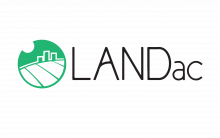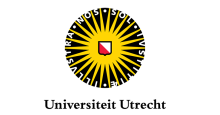Plurality of Knowledge: The future of land governance in shifting global contexts
Utrecht, the Netherlands | 2-4 July 2025
Call for Sessions opens 18 December 2024
As the LANDac contribution to the LAND-at-scale knowledge management programme draws to a close, we are pleased to use our Annual Conference 2025 as a space to share the rich learnings over five years of collaboration, and to use these learnings to inform how land governance can contribute towards equality and justice in an increasingly polarising world. We will offer two days of thought inspiring keynotes, panel sessions, round tables and other sessions for which we welcome your suggestions. Prior to the conference, on 2 July, we host a day with an educational focus, providing space for PhD and MSc students to present and exchange their work.
Over the five year period, we have seen changes in global and local contexts. Complex and interrelated crises threaten development achievements and challenge the resilience of people and governance agents. Themes central to the LAND-at-scale learning agenda have seen shifts: land and housing rights are increasingly insecure (2024 PRIndex Report), climate change more and more affects people’s ability to build livelihoods from their land, increasing numbers of people are displaced due to conflict, violence, political or economic instability, and despite many efforts, m still experience inequality when it comes to their rights to land and resources. In recent times the Global North is starting to renege on its efforts to curb climate change, its (financial) support to the Global South, and anti-immigration voices are getting stronger. Democracies and human rights are under pressure, across the globe. In a connected world, such global shifts have impact at local levels. In this rather grim reality, how can we, as academics, practitioners, CSO’s and policy makers, as human beings, contribute with our plurality of knowing, of seeing, of imagining, to a more just, inclusive and sustainable land governance?
Knowledge management is a way to bring these different stakeholders together with the aim to strengthen the implementation of land governance projects and programmes and inform policy in both the Global South and North. Dedicated components aim to work on generating, managing, disseminating, and using knowledge, with a focus on learning and adaptive programme management. This conference will zoom in on how plurality of knowledges have shaped and changed the implementation of land governance activities. With an integrated KM-strategy, implemented with and by LANDac and its partners, knowledge management and learning have been at the heart of the LAND-at-scale programme since its inception. The aim was to contribute towards the impact both at global programme level, and of the local in-country projects. The LAND-at-scale knowledge management programme brought together academia, practitioners, CSOs, policy makers and donors. This has taken shape in several collaborations such as between LANDac partners and the donor, and between the knowledge management partners and implementing organisations across the different countries. At country level, practitioners from different backgrounds and with different ways of thinking jointly worked towards shared outcomes. At the LANDac conference, we want to reflect on: What lessons can be learned from such collaborations, what has been the impact? At the same time, we want to look forward to see how these experiences can inform future land governance interventions in a glocal world where interconnected global and local issues are being reshaped.
Conference format (draft)
The 2-day conference kick-offs with prominent keynote speakers, followed by several rounds of parallel sessions in 1,5 hour slots and a closing keynote plenary. As in previous editions of the conference, we welcome a variety of formats: paper presentations, panel discussions, round tables for these two days. On 3 July we will close the day with drinks, offering ample opportunities for networking.
Prior to conference, on 2 July, we host a day with an educational interest, providing space for PhDs and MSc students to present their work and inspire each other. This day is open for all.
The conference will be concentrated on-site, in Utrecht. We aim to stream keynote sessions. We will have the possibility to host a limited number of sessions in hybrid format.
Regular updates on keynote speakers, accepted sessions, and other details on the programme will be shared through the LANDac website and the LANDac mailing list (sign up here).
Key dates
The conference takes place on 3 and 4 July 2025.
The Call for sessions will open on 18 December 2024 and close on 12 January 2025. Applicants will be informed on the acceptance of their session by 23 January 2025.
Accepted sessions will be published and call for abstracts for papers will open on 27 January 2025 and close on 16 February 2025. Acceptance of papers will be communicated by 3 March 2025.
On 2 July 2025 an education-focussed event will kick-off the conference. Calls for interest will be opened from 27 January – 16 February.
Registration will open early February 2025 and close end of June 2025.
Please note: Visa application procedures to the EU are lengthy. We strongly advise to start booking an appointment well ahead of time.
Contact: landac2025@gmail.com
Updates on the programme and the Summer School will be published through the LANDac website.
Organising committee
Wytske Chamberlain (LANDac/LAND-at-scale), Gemma van der Haar (LANDac & WUR), Kei Otsuki (IDS-UU), Femke van Noorloos (IDS-UU), Marja Spierenburg (Leiden University), Dimo Todorovski (ITC-University of Twente), Gemma Betsema (RVO LAND-at-scale), Mathijs van Leeuwen (Radboud University), Bertus Wennink (KIT Institute).
Summer School
The conference takes place back-to-back with the LANDac/Utrecht University Summer School. More information will follow soon. Check the LANDac website for updates.



